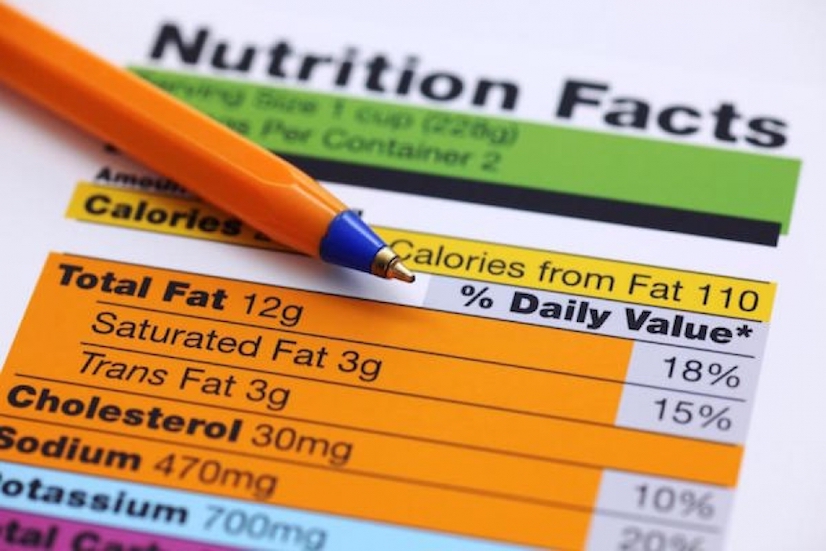I always emphasize that a nutritionally balanced diet is of the utmost importance for weight management, disease prevention, and overall good health. When most people think of such a diet, the first foodstuffs that generally come to mind are carbohydrates, fats and protein, which are collectively called macronutrients. Less thought of and rarely considered is the critical role of micronutrients.
Related Article: Macronutrients: Three Key Essentials of Healthy Eating
Relative to macronutrients, micronutrients are needed by the body in very small amounts yet they are absolutely critical for optimal day-to-day functioning. While some micronutrients simply facilitate chemical and metabolic reactions in the body’s cells, tissues and organs, others are powerful antioxidants capable of neutralizing the damaging effects of free radicals.
Related Article: What Free Radicals Really Do To Your Body
Micronutrients are primarily comprised of vitamins and minerals, which can further be broken down into sub-classifications based on their individual functions. The four sub-classifications of micronutrients include: water-soluble vitamins, fat-soluble vitamins, macrominerals and microminerals.
Micronutrients are needed by the body in very small amounts yet they are absolutely critical for optimal day-to-day functioning.
Water-Soluble Vitamins
Water-soluble vitamins are crucial for keeping your metabolism in check. Metabolism is essentially the amount of calories your body uses to fuel vital functions like breathing, blood pressure and brain activity. Through various chemical processes, water-soluble vitamins help the body unleash the calories stored in carbohydrates, fats and protein. These calories are then used to maintain a constant supply of energy for metabolism.
Related Article: The Important Role of Metabolism in Weight Loss
As implied by their name, water-soluble vitamins dissolve easily in water and are readily excreted from the body in urine. As such, they are incapable of being stored. These vitamins exist in many forms but nine are well recognized—Thiamin (vitamin B1), riboflavin (vitamin B2), niacin (vitamin B3), pantothenic acid (vitamin B5), vitamin B6, biotin (vitamin H), folate (vitamin B9), vitamin B12, and the antioxidant vitamin C.
The body doesn’t store most water-soluble vitamins so it’s best that they’re constantly replenished through the diet. Many are widely present in a diverse range of plant- and animal-based foods but some (vitamin C) are best acquired from fresh vegetables and fruits. Since deficiencies in these vitamins are quite common, supplementing a well balanced diet with a general multivitamin can help ensure adequate daily intakes.
Fat-Soluble Vitamins
Similar to water-soluble vitamins, fat-soluble vitamins play key roles in energy production and macronutrient metabolism. They are also needed to support cellular growth and development, heart and blood vessel health, bone and skin integrity, vision, nervous system function, and immunity. There are four types of fat-soluble vitamins—A, D, E, and K—two of which function as potent antioxidants (vitamins A and E).
Unlike water-soluble vitamins, fat-soluble vitamins are dissolved and transported in fat. They can also be stored in the body within liver cells and fatty (adipose) tissues until they are needed. Due to the body’s relatively large storage capacity for fat-soluble vitamins, consuming megadoses in supplement form is not at all ideal. In fact, doing so can actually cause them to accumulate in the body and become toxic.
Better to get your fat-soluble vitamins from the wide ranges of foods that naturally contain them, which include deeply colored vegetables (dark leafy greens, bell peppers and carrot), nuts and seeds, whole grains, oily fish, vegetable oils, egg yolks and dairy foods. Since, dietary fat is necessary for proper absorption of these vitamins it’s also important to occasionally incorporate full-fat foods into your diet for optimal health.
Related Article: Good Fats Versus Bad Fats: What You Need to Know About Dietary Fat
Macrominerals
Macrominerals are a sub-class of micronutrients that the body needs in relatively large quantities due to their already wide presence in the body. Such minerals include calcium, potassium, sodium, iron and magnesium. While some of these minerals are important structural components in the body others are key electrolytes, which are necessary for proper functioning of the heart, nerves and other organs.
In most cases, adequate amounts of macrominerals can easily be acquired from a variety of foods in all the major food groups. Some of the richest natural sources include dark leafy green vegetables, potatoes, legumes (beans and lentils), nuts and seeds, whole grain foods, and virtually all animal-based foods (beef, lamb, poultry, seafood and dairy foods).
Related Article: A Simple Guide to Eating Sensibly
Microminerals
Generally referred to as trace minerals, microminerals are needed by the body in almost minute amounts but they are no less essential than other micronutrients. Trace minerals primarily work with enzymes to enable a variety of chemical reactions to occur in the body. Many are important for overall good health (iodine, manganese and iron) but three are especially critical as they are sole antioxidant minerals—Selenium, copper and zinc.
Related Article: Selenium: A Powerful Antioxidant You’ve Probably Never
These minerals tend to interact with other micronutrients and function together to exert their effects. Their collective actions promote healthy thyroid activity, aid in red and white blood cell formation and function, and enable connective tissue synthesis in ways that support the wound healing process. Selenium, copper and zinc have a large presence in meats (beef, lamb and organ meats), seafood, egg yolks, whole grain foods and soy products.
While water-soluble vitamins, fat-soluble vitamins, macrominerals and microminerals are not direct sources of calories they are all absolutely critical for preventing disease and maintaining good health. Unfortunately, these days, micronutrient deficiencies are commonplace and that’s not a good thing. To ensure you’re getting them in sufficient amounts it’s important to regularly consume a range of different foods from all the major food groups.
You can generally track your daily intakes of a variety of micronutrients using the Nutrition Facts food label located on the backs of product packages. They are generally depicted as percentages based on an average sized person (150-190 pounds) consuming a daily diet of 2,000-2,500 calories. Most food labels only highlight the micronutrients contained in the food of reference.
You can generally track your daily intakes of a variety of micronutrients using the Nutrition Facts food label located on the backs of product packages.
For example, the food labels of dairy products typically list calcium percentages due to their rich content of this essential macromineral while you’ll often see vitamin A percentages shown on the packages of deeply colored vegetables since they are packed full of this fat-soluble antioxidant.
Now, if you wish to supplement your diet with one or more micronutrients, this should only be done under supervision of a qualified health professional. All supplements aren’t good supplements and none should serve as substitutes for good nutrition.
Related Article: Supplements Are No Substitute for Good Nutrition







